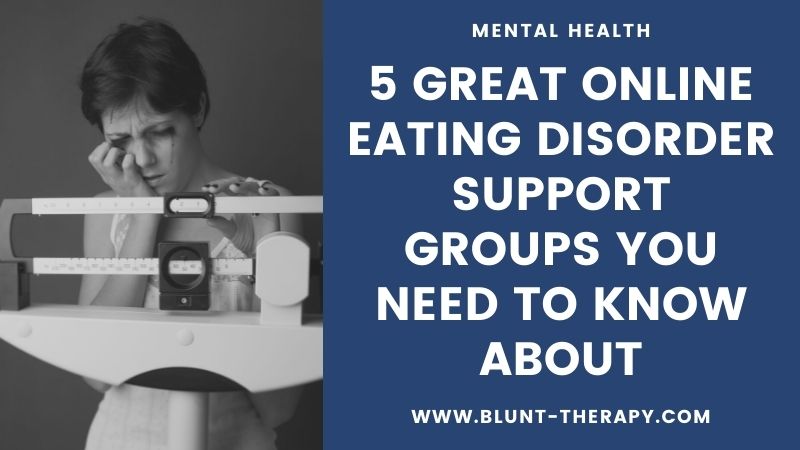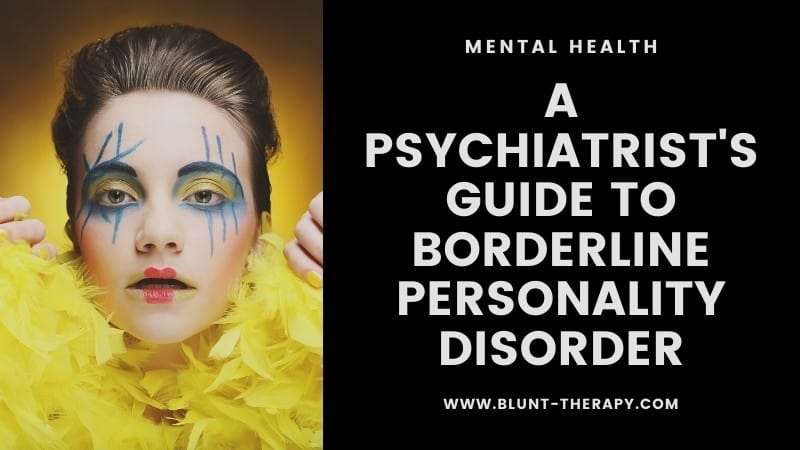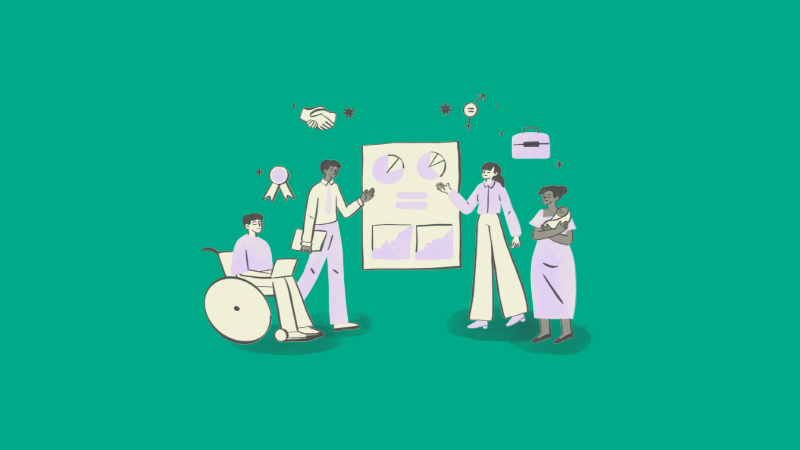Table of Contents
Affiliate link notice: As an affiliate of BetterHelp and other third-party vendors, We will receive compensation if you make a purchase using the links provided on this page. For more information, visit our disclosure page.
Last Updated on June 20, 2022 by Randy Withers, LCMHC
We all know somebody who found love on an online dating app. If you are reading this, that person is probably not you.
For most of us, online dating is frustrating, especially if you take it seriously. Potential suitors are often flighty, defensive, and shallow. People lie. People ghost.
It’s an experience similar to shopping at Walmart at 3am. Sure, you may find exactly what you are looking for. But more than likely, you just end up being grossed out by the behavior of strangers.
Online dating apps were supposed to make things easier. They were supposed to facilitate the search for true love.
Instead, more and more users of apps like Tinder have discovered the dangers of online dating outweigh the potential rewards.
While this post is not meant to discourage you from dating online, it is meant to educate you about the psychological risks, so that you will be in a better position to protect yourself.

The Dangers of Online Dating
Dating is inherently risky. Most relationships fail. Sometimes, you get your heart broken.
That’s all normal, though. That’s the cost of doing business.
Online dating, however, takes those costs to another level. To that end, let’s look at 5 of the dangers of online dating that don’t exist in “normal” dating situations.
1. Increased Levels of Psychological Distress
In early 2020, the Pew Research Center published the results of a study about online dating in America. While it does note a few positive features, like convenience, the study also identifies some concerning trends.
For example:
- 45% of users reported that online dating left them feeling more frustrated than hopeful
- 60% of women aged 18-34 say someone on a dating app continued to contact them after they said they were not interested
- 57% report that another user sent them an unwanted sexually explicit message or image.
- 44% report that someone called them an offense name
- 19% say they have had someone threaten physical harm
- 53% of women say that dating apps are an unsafe way to meet people
- 26% report the experience was mostly negative
The findings in that report are not unique.
One study published in BMC Psychology in March 2020 found that people who use online dating apps are more likely to be depressed, anxious, or to feel distressed as a result.
Another study in Body Image, published in 2017, showed that female Tinder users struggled with body image issues and that male users struggled with low self-esteem. And according to the latest trends in plastic surgery, social media and dating apps play a significant role in people turning to cosmetic surgery.
It’s not clear whether online dating apps cause increased levels of psychological distress, or if people at risk of psychological distress tend to use online dating apps. It may be a little of both.
What is clear is that we should be careful. Online dating is essentially a form of social media, and we all know that social media interactions tend to be more toxic, divisive, and antisocial than most real world interactions.
The bottom line: one of the dangers of online dating is exposure to stressors that dispose some users to increased amounts of depression and anxiety.
2. The Paradox of Choice
It’s counter-intuitive, but humans don’t do well with unlimited options.
When dating in the real world, most of us only have one or two opportunities at a time. A friend who has a friend, or perhaps someone you meet at a bar.
Those are manageable numbers. But what if your friend had 500 friends they wanted you to meet?
When we have too many choices, decisions become overwhelming. The famous jam experiment documents this phenomenon well.
Conducted by researchers at Columbia and Stanford Universities, the experiment measured people’s behaviors regarding choice. Basically, they found that people make better decisions when they have fewer choices.
It’s called “The Paradox of Choice.” In his book by the same name, author and Psychologist Barry Schwartz argues that less is often more. He states that having too many choices is both exhausting and paralyzing, promotes unrealistic expectations, and encourages self-blame if we make the wrong decision.
Think about how this applies to the world of online dating. How many hundreds of potential matches have you swiped left on without giving so much as a second glance? How many times has the same thing happened to you?
There is also a major paradox of choice when it comes to choosing the right dating app. There are HUNDREDS of options available and it can be overwhelming to decide which is the right one for you.
There are some great rankings of the top dating sites that you can look at that will help but even that isn’t a perfect solution. Everyone is looking for something different and with many sites you don’t really know if it’s going to work for you until you try it out.
If you approach using these sites with high expectations there is a very good chance you’re going to be very anxious and ultimately disappointed. You’re much better off thinking about them as just another option that will be interesting to try out but not one to pin all your hopes on.
The bottom line: one of the dangers of online dating is an overabundance of choice. It stresses you out, increases your anxiety, and leads to frustration and unhappiness.
3. Rejection is a Self-Esteem Killer
Rejection is a fact of life. There are more than 7 billion people on the planet, and not all of them are going to like you.
Learning to deal with rejection in healthy ways is a key feature of adulthood. But surely we were never meant to be bombarded with rejection, right?
Online dating apps do make it easier to meet people. But they also make it a lot easier to get rejected by them, too.
This study shows 88% of all Tinder users never find a relationship on that app. That means the vast majority of users will experience some form of rejection by hundreds if not thousands of other users.
In fact, rejection is so commonplace in the online dating world that new terms had to be invented to catalog its various forms. Some of my favorites:
- Ghosting (an abrupt and cowardly departure)
- Benching (when someone just gradually disappears)
- Catch and Release (exactly how it sounds)
- Breadcrumbing (when the person just strings you along)
- Stashing (when you are kept hidden from their family and friends)
- Cushioning (they just keep you around to make themselves feel superior)
Unfortunately, interpersonal rejections – whether online or in real life – “constitute some of the most distressing and consequential events in people’s lives,” according to Mark Leary, PhD, a psychologist at Duke University. “Rejections have myriad emotional, psychological, and interpersonal consequences. People not only react strongly when they perceive others have rejected them, but a great deal of human behavior is influenced by the desire to avoid rejection.”
emotional/psychological consequences of rejection include:
- Hurt feelings
- Jealousy
- Loneliness
- Guilt/shame
- Social anxiety
- Embarrassment
- Sadness
- Anger
None of these feelings are good for your self-esteem.
If you elect to use online dating apps, it’s important to keep in mind you will be rejected dozens if not hundreds of times. Consider how well you handle strong negative emotions before you proceed.
The bottom line: one of the dangers of online dating is allowing rejection by strangers to compromise your self-esteem. You need to understand that the behavior of others has nothing to do with your worth.
4. Deceptive Behavior Leads To Trust Issues
According to research conducted by Pew Research Center, 71% of online dating app users simply assume that other users are lying to them about something.
And they’re not wrong.
This article indicates between 50-80% of online daters admit to lying about something significant – age, appearance, location, and marital/relationship status are some of the likely offenders.
How many of you reading this have been catfished? Or how about kittenfished? I guarantee we’ve all been victims of the latter.
How do all these deceptive behaviors affect our ability to trust?
The relative anonymity of online dating is inherently problematic when it comes to establishing trust. It’s just so darn easy to misrepresent yourself. And it’s so darn hard to verify facts.
As trust is critical for the development of healthy, secure, and satisfying relationships, it follows that trust issues have a way of sabotaging them.
People who struggle with trust issues also tend to struggle with anxious attachment styles, jealousy, low self-esteem, and even intimate partner violence (IPV).
“Trust, but verify” is an axiom all online daters need to follow to protect themselves. Measure your expectations, and demand honesty and transparency from people you meet online.
There are plenty of good, honest people who use online dating apps. Those who fit that description will have no problem revealing their true selves to you. Those who do not will reveal themselves as well. You just have to know what to look for. As a general rule, if you feel like someone is trying to deceive you, they probably are. Trust your gut; intuition exists for a reason.
The bottom line: one of the dangers of online dating is it can make you jaded. Don’t let it. Trust issues ultimately compromise your ability to form healthy relationships with others.
5. Online Dating Apps Might Be Addicting
Internet addiction is a serious matter. Worldwide, it is estimated that 6% of the population, or 470 million people, struggles with it.
Research on dating app addiction is still in its infancy, but the data suggests it is a cause for concern.
Obsession and compulsion are defining features of any addiction. Unfortunately, online dating apps can be incubators for those two behaviors.
How many times have you found yourself compulsively swiping through potential partners? How many times have you found yourself obsessing over potential matches? Will they respond? Will they like me? Will I ever find true love?
Most online daters will never develop an addiction, but the point here is that online dating apps make it easier for those problematic behaviors to fester.
Some notable statistics, from a recent survey conducted by Match.com:
- 15% of users say they feel addicted to the process of looking for a date.
- Millennials are 125% more likely to feel addicted to dating than older generations.
- Men are 97% more likely to feel addicted to dating than women.
The bottom line: one of the dangers of online dating is that it promotes obsessive/compulsive behavior in vulnerable users.
One of the best things you can do is limit the time you spend using these apps. You don’t need to spend more than 15 minutes a day looking for love.
Final Thoughts
The dangers of online dating are clear and well-defined, but that doesn’t mean you need to stop trying. You just need to be smart about it.
It’s important to approach online dating with your eyes wide open and to measure your expectations accordingly.
Online dating is NOT the same as dating someone you met through a friend, or at Church, or in school.
It’s important to accept that certain features of online dating apps are going to rub you the wrong way. You are going to be lied to. You are going to be rejected. It’s not a reflection of you or of your worth. It is simply the way online dating works.
As you go forward, be aware of the psychological dangers of online dating and take steps to protect your mental health. Get support from your family and friends.
And if you feel like you need professional support, don’t hesitate to reach out to a licensed mental health professional.
We all deserve love. But nobody deserves to have their mental health compromised as they search for it.
How has your mental health been affected by online dating? Share your experiences in the comments section below.
References
- 10 facts about Americans and online dating
- Online Dating: A Critical Analysis From the Perspective of Psychological Science
- Swipe-based dating applications use and its association with mental health outcomes: a cross-sectional study
- Dating Application Use and Sexual Risk Behavior Among Young Adults
- Love me Tinder: Body image and psychosocial functioning among men and women
- When Choice is Demotivating: Can One Desire Too Much of a Good Thing?
- Why too much choice is stressing us out
- The Paradox of Choice: Why More Is Less, Revised Edition
- How to Deal With Rejection the Right Way, Including Expert Tips and Strategies
- What all those viral dating terms actually mean
- Emotional responses to interpersonal rejection
- Pants On Fire: The Most Common Lies on Dating Sites (And Why People Lie)
- The Price of Distrust: Trust, Anxious Attachment, Jealousy, and Partner Abuse
- Online Dating and Problematic Use: A Systematic Review









